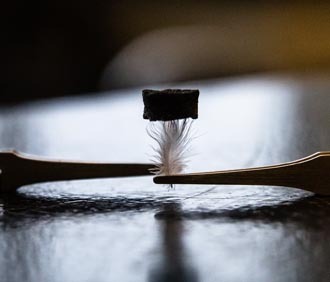
McMaster Engineering scientists Emily Cranston and Igor Zhitomirsky are turning trees into energy storage gadgets efficient in powering whatever from a wise watch to a hybrid automobile.
The researchers are utilizing cellulose, a natural substance discovered in plants, germs, algae and trees, to develop more effective and longer-lasting energy storage gadgets or capacitors. This advancement leads the way towards the production of light-weight, versatile, and high-power electronic devices, such as wearable gadgets, portable power products and hybrid and electrical cars.
” Eventually the objective of this research study is to discover methods to power existing and future innovation with performance and in a sustainable method,” states Cranston, whose joint research study was just recently released in Advanced Products. “This implies preparing for future innovation requires and counting on products that are more eco-friendly and not based upon diminishing resources.
Cellulose provides the benefits of high strength and versatility for numerous innovative applications; of specific interest are nanocellulose-based products. The work by Cranston, an assistant chemical engineering teacher, and Zhitomirsky, a products science and engineering teacher, shows a better three-dimensional energy storage gadget built by trapping practical nanoparticles within the walls of a nanocellulose foam.
The foam is made in a streamlined and quick one-step procedure. The kind of nanocellulose utilized is called cellulose nanocrystals and appears like raw long-grain rice however with nanometer-dimensions. In these brand-new gadgets, the ‘rice grains’ have actually been glued together at random points forming a mesh-like structure with great deals of open area, thus the very light-weight nature of the product. This can be utilized to produce more sustainable capacitor gadgets with greater power density and faster charging capabilities compared to rechargeable batteries.
Light-weight and high-power density capacitors are of specific interest for the advancement of hybrid and electrical cars. The fast-charging gadgets permit considerable energy conserving, since they can collect energy throughout braking and launch it throughout velocity.